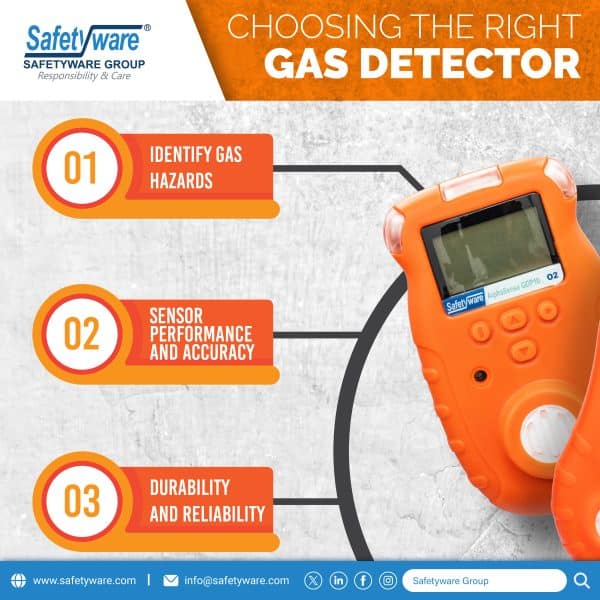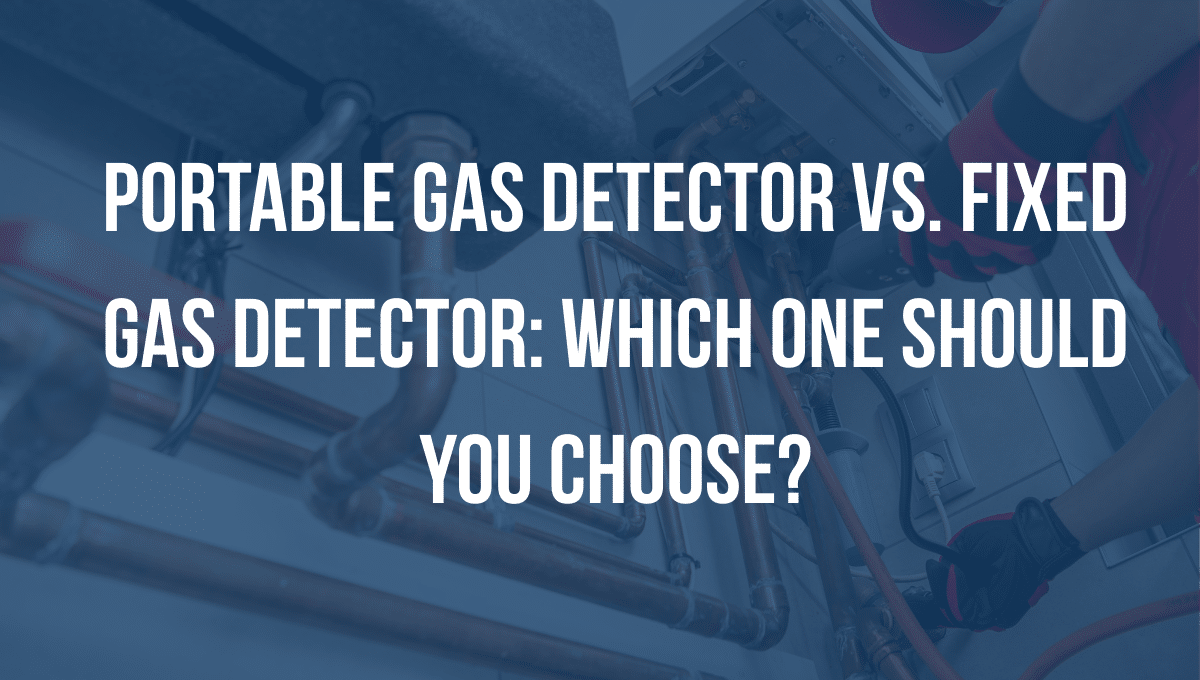Gas detection is a critical component of workplace safety, especially in industries like oil and gas, mining, chemical manufacturing, and confined space operations. When it comes to gas detection systems, there are two main types: portable gas detectors and fixed gas detectors. Both serve the same purpose—monitoring hazardous gases—but they are designed for different applications. Choosing the right type can significantly enhance safety, efficiency, and compliance.
What Is a Portable Gas Detector?
A portable gas detector is a handheld or wearable device designed for personal use. It is typically battery-operated and allows workers to carry it around to monitor gas levels in real time, especially in changing or confined environments.
Key Features:
- Mobility: Lightweight, compact, and easy to carry or wear.
- Real-Time Alarms: Provides immediate audio, visual, and vibration alerts when gas levels exceed safe limits.
- Battery-Powered: Designed for short-term use, usually lasting 8–24 hours per charge.
- Versatility: Can be used across multiple locations.
Best For:
- Personal Safety: Workers entering confined spaces or areas with potential gas leaks.
- Spot-Checking: Quick assessments in different areas of a facility.
- Emergency Response: First responders and safety teams assessing hazardous environments.
Example Use Cases:
- A technician entering a storage tank to check for oxygen deficiency.
- A maintenance worker monitoring CO levels in a boiler room.
What Is a Fixed Gas Detector?
A fixed gas detector is a stationary system installed in specific locations where gas hazards are likely to occur. It is hardwired into the facility’s power supply and often integrated with centralized control systems for continuous monitoring.
Key Features:
- Continuous Monitoring: Provides 24/7 surveillance of gas levels in a fixed area.
- Centralized Alerts: Sends notifications to control rooms or safety personnel for immediate action.
- Durable Design: Built to withstand harsh environments (e.g., extreme temperatures, corrosive atmospheres).
- Integration Capabilities: Can be linked to ventilation systems, alarms, and automated shutdown protocols.
Best For:
- Facility Monitoring: Areas with persistent gas risks, such as pipelines, manufacturing plants, or storage facilities.
- Early Warning Systems: Detecting leaks before they escalate into emergencies.
- Process Control: Ensuring safety in automated industrial processes.
Example Use Cases:
- Monitoring hydrogen sulfide (H₂S) levels in a wastewater treatment plant.
- Detecting methane leaks in a natural gas compression station.
Comparison Table: Portable vs. Fixed Gas Detectors
| Aspect | Portable Gas Detector | Fixed Gas Detector |
|---|---|---|
| Mobility | Highly mobile; personal use | Stationary; fixed installation |
| Power Source | Battery-operated | Hardwired to power supply |
| Monitoring Coverage | Localized to user’s location | Continuous area monitoring |
| Alert System | Immediate personal alerts | Centralized control room alerts |
| Cost | Lower upfront cost | Higher upfront and installation cost |
| Maintenance | Regular charging and calibration | Periodic calibration and system checks |
| Ideal Use Case | Confined spaces, spot checks, emergencies | High-risk fixed areas, 24/7 monitoring |
How to Choose the Right Gas Detector
1. Assess the Environment
- Is the hazard confined to specific areas? → Fixed Detector
- Do workers move through unpredictable or changing environments? → Portable Detector
2. Consider the Use Case
- Personal safety during entry into confined spaces → Portable Detector
- Monitoring gas levels in a production zone → Fixed Detector
3. Evaluate Integration Needs
- Need to automate responses (e.g., activating ventilation)? → Fixed Detector
- Require flexibility and mobility? → Portable Detector
4. Budget and Maintenance
- Limited budget? → Start with Portable Detectors
- Long-term, large-scale monitoring? → Invest in Fixed Detectors
Why Choose Safetyware’s Gas Detection Solutions?

Safetyware offers both portable and fixed gas detectors designed for reliability and compliance with international standards. Our products include:
- Portable Models: Multi-gas detectors with extended battery life and rugged designs.
- Fixed Systems: Customizable detectors integrated with centralized monitoring software.
Conclusion
Both portable and fixed gas detectors play vital roles in ensuring workplace safety. While portable detectors offer flexibility and personal protection, fixed detectors provide uninterrupted surveillance for high-risk areas. The right choice depends on your specific operational needs, environment, and safety goals.
Stay safe, stay informed—choose the right gas detection solution for your workplace!
For more updates on safety news and insights, visit our website at Safetyware.
Any Questions? Contact Us:
📩 Email: [email protected]
🌐 Website: www.safetyware.com

